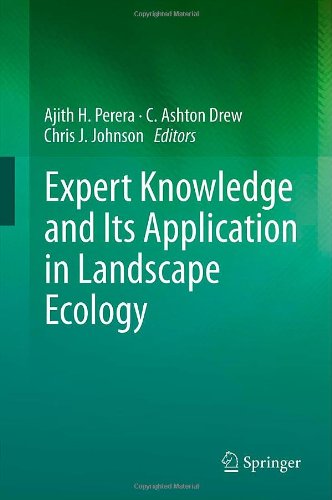

Most ebook files are in PDF format, so you can easily read them using various software such as Foxit Reader or directly on the Google Chrome browser.
Some ebook files are released by publishers in other formats such as .awz, .mobi, .epub, .fb2, etc. You may need to install specific software to read these formats on mobile/PC, such as Calibre.
Please read the tutorial at this link: https://ebookbell.com/faq
We offer FREE conversion to the popular formats you request; however, this may take some time. Therefore, right after payment, please email us, and we will try to provide the service as quickly as possible.
For some exceptional file formats or broken links (if any), please refrain from opening any disputes. Instead, email us first, and we will try to assist within a maximum of 6 hours.
EbookBell Team

4.1
80 reviewsTypically, landscape ecologists use empirical observations to conduct research and devise solutions for applied problems in conservation and management. In some instances, they rely on advice and input of experienced professionals in both developing and applying knowledge. Given the wealth of expert knowledge and the risks of its informal and implicit applications in landscape ecology, it is necessary to formally recognize and characterize expert knowledge and bring rigor to methods for its applications. In this context, the broad goal of this book is to introduce the concept of expert knowledge and examine its role in landscape ecological applications. We plan to do so in three steps: First we introduce the topic to landscape ecologists, explore salient characteristics of experts and expert knowledge, and describe methods used in capturing and formalizing that knowledge. Second, we present examples of research in landscape ecology from a variety of ecosystems and geographic locations that formally incorporate expert knowledge. These case studies address a range of topics that will interest landscape ecologists and other resource management and conservation professionals including the specific roles of expert knowledge in developing, testing, parameterizing, and applying models; estimating the uncertainty in expert knowledge; developing methods of formalizing and incorporating expert knowledge; and using expert knowledge as competing models and a source of alternate hypotheses. Third, we synthesize the state of knowledge on this topic and critically examine the advantages and disadvantages of incorporating expert knowledge in landscape ecological applications. The disciplinary subject areas we address are broad and cover much of the scope of contemporary landscape ecology, including broad-scale forest management and conservation, quantifying forest disturbances and succession, conservation of habitats for a range of avian and mammal species, vulnerability and conservation of marine ecosystems, and the spread and impacts of invasive plants. This text incorporates the collective experience and knowledge of over 35 researchers in landscape ecology representing a diverse range of disciplinary subject areas and geographic locations. Through this text, we will catalyze further thought and investigations on expert knowledge among the target readership of researchers, practitioners, and graduate students in landscape ecology.